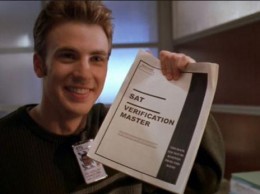Trying to Level the SAT Prep Playing Field

The SAT went back to its old 1600-point system this week (thank youuuu) and along with that announcement came news of a partnership between The College Board and Khan Academy. Khan Academy is a non-profit with the mission of “providing a free, world-class education for anyone, anywhere,” are teaming up to make test prep free and accessible on the web. Nona Willis-Aronowitz at NBC News reports:
[Collegeboard CEO David] Coleman took aim at the multi-billion dollar private test prep industry, saying it “drives the perception of inequality and injustice in our country.” He charged the companies with “intimidat[ing] parents at all levels of income” into paying exorbitant fees for coaching and tutoring.
Companies like Kaplan and Princeton Review, as well as smaller boutique test prep businesses, can charge more than $1,000 per course. Private tutors often charge more than $15,000 a year. According to the College Board, the industry is largely built on teaching kids “tricks” and gimmicks to outsmart the test, as well as other skills and facts that even Coleman now admits have been disconnected from what kids learn in school.
Kaplan, for their part, is not threatened.
He’s not worried that the College Board’s new partnership and test tweaks will pose a challenge to Kaplan’s business model. Free test prep may become the norm, but “students will always look for an edge.”
In other words, the new partnership might provide greater access to free test prep for low-income students — but that doesn’t mean privileged families will think these programs are adequate for their kids.
Of course! And yes, free online videos are great but don’t really rival one-on-one tutoring tailored to a student’s particular strengths and weaknesses.
As many sources pointed out, inequality runs deeper than test prep. In fact, more than 800 colleges have decided to stop considering SAT test scores at all.
Wake Forest University, where Soares teaches sociology, decided to go test-optional in 2009, a strong statement in a country where around 80 percent of four-year colleges still require SAT or ACT scores. After that, Wake Forest’s African-American application pool went up 70 percent; the total minority population at the college went up from 15 percent to 26 percent.
“The test is an unnecessary hurdle,” Soares said of the SAT, “and a barrier to diversity. It’s a waste of time and resources, and the nation doesn’t need it.”
I would agree that offering free videos online is not exactly a significant step towards making the SAT a fair predictor of college performance, or eliminating the socioeconomic bias inherent in it. Still something, though.
Support The Billfold
The Billfold continues to exist thanks to support from our readers. Help us continue to do our work by making a monthly pledge on Patreon or a one-time-only contribution through PayPal.
Comments